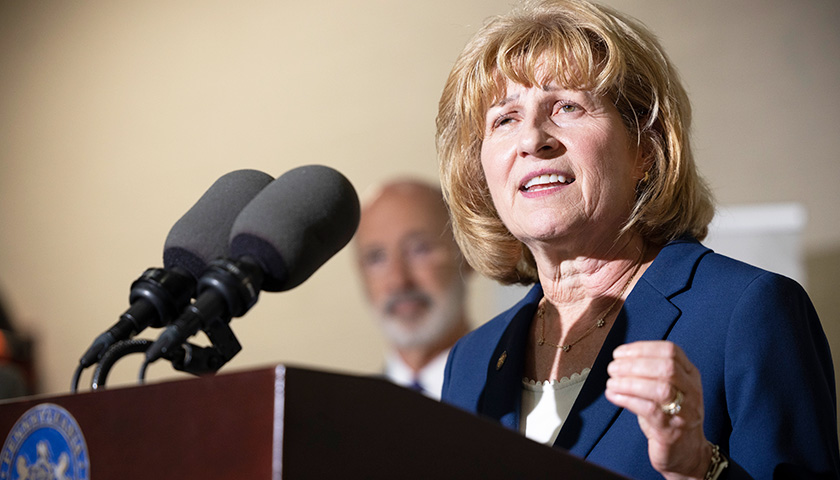State Senator Judy Schwank (D-Reading) announced on Monday she will introduce a bill mandating that Pennsylvania hotel and motel businesses train their workers in human-trafficking awareness.
Human trafficking, an industry the International Labour Office believes to generate $150 billion each year, is a form of slavery whereby human beings are defrauded or coerced into servitude that is often sexual in nature. The U.S. Department of State estimates that about 25 million people worldwide are victims of human trafficking. Of those, nearly a third are children or teenagers and roughly half are women.
The U.S. government considers anyone under the age of 18 who participates in a commercial sexual relationship to be a victim of human trafficking. Over 100,000 such victims are estimated to exist in America each year; more than 10,000 of those cases were reported and 72 percent of those pertained to sexual exploitation.
Some trafficking takes the form of domestic servitude. In such situations, exploiters take hold of the victims’ identification documents to constrain their ability to travel away from their work sites, including some hospitality businesses.
Hotels and motels sometimes serve as trafficking crime scenes with management and staff never becoming aware of it. The hospitality information website Hospitality Net has called hotels “a well-known hotbed for trafficking schemes” because such crimes “rely on deceptive and discreet environments.”
In a memorandum seeking co-sponsors for her legislation, Schwank noted the Pennsylvania Restaurant & Lodging Association provides its members with free human-trafficking prevention instruction through an alliance called Businesses Ending Slavery & Trafficking. This organization’s programs, which hospitality establishments across the country utilize, are presently voluntary.
Schwank’s measure would require members of the lodging and truck-stop industry to acquire minimally 20 minutes of anti-trafficking training once every two years. A new hotel or motel staffer would need to obtain his or her initial session within six months of getting hired. Florida, Texas, Illinois and California already require hotel and motel employers to administer such training.
Telltale signs that trafficking is taking place at a lodging site include a younger person in the couple or group that appears lightheaded or distant from their traveling companion, a room being paid for in cash night after night, or a guest checking in who does not seem to be staying in the lodging accommodation himself (or herself).
According to Hospitality Net, the proliferation of human trafficking worsened after the COVID-19 pandemic hit in 2020. After governments across the globe imposed stay-home edicts and many industries paused operations entirely, the World Bank estimated that 70 million individuals newly faced extreme poverty. Perpetrators began increasingly availing themselves of technology that came into greater use during COVID, including contactless check-in, which made it harder for staffers to notice indications of trafficking.
With higher alleged incidence of these offenses taking place at lodging sites, hotel chains – including Wyndham Hotels & Resorts, Hilton Hotel and Choice Hotels Corp. – have faced major lawsuits for negligence related to these activities.
Schwank’s bill would be the first major Keystone State legislation addressing human trafficking since 2018, when the Pennsylvania General Assembly unanimously passed “safe harbor” legislation to give legal immunity to underage participants in pornography, prostitution and related crimes. That act, which Gov. Tom Wolf (D) signed, also authorized the commonwealth’s Department of Human Services to administer special social services to exploited minors, required that law-enforcement agents get trained to work with trafficking victims and commenced the Safe Harbor for Sexually Exploited Children Fund to aid victims.
– – –
Bradley Vasoli is managing editor of The Pennsylvania Daily Star. Follow Brad on Twitter at @BVasoli. Email tips to [email protected].
Photo “Judy Schwank” by Governor Tom Wolf. CC BY 2.0.





